A day doesn't go by when I don't think of Dean Stockwell. I have known him for my entire 67 years, but in all honesty, I only knew him since I was a baby until the age of 21. Dean was very close to my father, the artist Wallace Berman, and had a good relationship with my mother, Shirley. In actuality, and practice, it was very much a boy's club, which I would include Russ Tamblyn, Billy Gray, George Herms, and of course, there were women. My Mom, Toni Basil, Elizabeth Tamblyn, Louise Herms, and Helena Kallianiotes. All lived in Topanga Canyon from the 1960s through the 70s. Very much the citizens of The Topanga Corral, among other locations in the canyon.
After the age of 21, which means after my father's death, Dean and I became separated due to an argument of placing Wallace's artwork in his and Neil Young's film Human Highway. I refused to give permission for Dean to use Wallace's work in that film, which caused a significant split between us two. I haven't seriously talked to Dean since 1977. Every decade or so since then, I would run into him, mostly at openings. We hugged, and then that was it. The relationship used to be much tighter. It was very much based on how Dean felt about Wallace, and no doubt he loved him. After Wallace's death, things change in the social circle. It's like sand shifting when you remove the gravel or pebble. Dean was of great importance in my life, and after my Dad died, that role changed radically. I can't remember if it was George Herms or Russ Tamblyn, but one of them called Dean while working in a dinner theater somewhere in the middle of the country. When told of the news, Dean couldn't stop laughing. I share this nervous behavior with Dean. Often when I'm confronted with startling or shocking bad news, I tend to laugh. It's a stress release of some sort, but of course, it's strange for those around that person. I imagine hearing the news; Dean saw the world from a different perspective. Because of Wallace's sudden death, no one was prepared for the changes that would take place.
I don't have a first-time memory of Dean. He was there, that's all. My Mom told me that Ed Kienholz introduced Dean to Wallace around 1955, and from that moment on, the two men were extremely close. Without Dean's friendship, we would have been in hot water as a family. When our house collapsed in Beverly Glen, Dean bought us the Topanga house. Dean also bailed Wallace out of jail when he got busted for the Ferus Gallery show as a pornographer. More important to me, Dean bought me the albums Herman's Hermits on Tour and Rolling Stones' Out of Our Heads as Christmas gifts in 1965. Sadly the house went down two days after Christmas. I often think of those two albums as I think of Dean.
Dean loved music. As a kid, I would explore his album collection, and the first memory is the Columbia Masterworks label. He had a comprehensive collection of recordings of Bach's music. Including the beloved Glenn Gould recordings. Dean was also an early admirer of The Beach Boys. At the time, that was a bold choice of music if you were hanging out with The Beats. The Beatles vs. Stones are exceptionally OK, but liking The Beach Boys over those two bands. That was ridiculous. Still, Dean had a solid and sophisticated sense of taste when it came to music.
Dean took the image of my father that is on the iconic Beatles' Sgt Pepper cover. The British art dealer Robert Fraser was close to Dean and Dennis Hopper. It was either Dean or Dennis (or both) who introduced Groovy Bob to Wallace. Which, in turn, motivated Robert to have the image of Wallace on the Pepper cover. Fraser knew The Stones and The Beatles and brought the visual art world to the music scene of that time in London. Dean was very much a passenger in that world as well in the 60s. Many have commented that he was part of the Topanga scene, but he was also friendly to the Stones world and the British art scene. His long-time girlfriend Toni Basil was also a bridge between the showbiz music world, the new cinema, and the Beat Art World. To me, those two were the couple that changed the world.
Wallace encouraged Dean to do visual art. One can witness Dean leaving the straight Hollywood film life for the adventure of being an artist working away in his own space and time. As a child actor at M.G.M. studios, Dean was told what to do. Being in an age where one can't play as a child and looked upon as a breadwinner for his family, he didn't have that playful 'normal' childhood. With Wallace, Dean could play and expose himself to the arts for the sake of the art and not for the paycheck. There wasn't a moment in my life when I realized Dean was not an actor, but it was a world that he didn't discuss with my parents or with me. He sort of treated acting on a T.V. show as a day job, as if one was working at the local Trader Joe's.
The funny thing with Dean the more he showed disinterest in the acting world, the more jobs he got. We knew Dean when he was in Compulsion and Long Day's Journey into Night. I don't think he ever brought that up with my parents. He even won an award at Cannes Film Festival for Compulsion. Still, he seemed not to be part of that world. Or, he lived a compartmentalized world. Dean knew I was a massive fan of the T.V. show Combat! He took Wallace and me to the M.G.M. set. I met Vic Morrow and Roddy McDowell, with whom he worked on the original Broadway version of Compulsion. It wasn't unusual for Toni to invite us to her work, such as T.A.M.I. or The Monkees' Head, but Dean would rarely take us on a movie set.
I saw Dean as one of Wallace's best friends, but there was something more profound than that. I felt Dean was a family member, or he became part of our family in his manner. My Mom told me that she met his first wife, Millie Perkins, maybe once or twice, before the Berman family moved up to San Francisco. Dean got married when Wallace left Los Angeles, and when we came back, he was single again. The first night we were back, Dean stayed at our house for four days and nights. Perhaps we were his real family. Dean was lovely to me as a child and even as a teenager in Topanga, even though things got tense time-to-time with Wallace.
Sometime around 1966, Dean came to our house when Wallace was away. My Mom and I were there, and Dean was acting very odd. As I was upstairs in my room, Dean would yell, "Where's Wallace?" as if he may have been hiding in my room. I remember we tried to calm him down, and Wallace eventually showed up and realized that something was drastically wrong. I never witnessed anyone having a nervous breakdown. Still, Dean was very ill and was taken to the hospital, where he stayed in a mental ward. Wallace took me to visit him, and he seemed happy there, or at least of some form of peace. Years later, Dean with David Bowie visited Iggy Pop in the same hospital ward. Blowup just opened in Los Angeles, and I think everyone in Dean's ward got to go on a field trip to see that film. I remember Dean loving that film, and now looking back on it, I wonder if he was going through what the David Hemmings character was going through in that film. Reality becomes fragmented and barely holds on to some form of sanity of some sort.
Dean was crazy. That, we accept with open arms. He is probably the most genuinely intense person I have ever met. When he spoke to you, his eyes went right through your very presence. By his nature or acting skills, he knew how to read a person in front of him. I think Dean was fascinated by Wallace, and even their arguments were of great interest. In the early 1970s, Dean was producing a staging of Picasso's Desire Caught by the Tail at the Mermaid Tavern in Topanga. He had sets built, but coincidentally, Wallace was having one of his 'rare' weekend exhibitions in the same spot. He insisted that Dean remove the stage sets. This, at the time, wasn't a practical thing for Dean to do, but Wallace wouldn't back down. I remember that they had a heated discussion, and eventually (like always), Wallace won the argument or the confrontation. When they did argue, it made me feel awkward because on one end, it was my Dad, and on the other, it was Dean. If not my real Uncle, at least someone as important as a family relative.
Dean loved to drive, and he loved to go on car trips and camp out in some beautiful locations. He would often take us on such a trip, and on one occasion with Toni, we went on a camping trip somewhere in the mountains. My guess is it was Big Bear. As Dean was driving and going deeper into a wooded area, Wallace, sitting in the back seat with my Mom and me, somehow brought up the subject matter that acting is not an art form but a craft. This subject matter caused a chill that gave me goosebumps, and not in a good way. Dean and Toni insisted that acting is an art form. Both were upset with Wallace thinking that acting is something in the same field as plumbing or factory workers in an assembly line in Detroit. Wallace wouldn't back down, and each second made me feel more uncomfortable. I thought for sure; Dean would abandon us on this terrifying two-lane road in the woods. As it got more heated, Wallace got more forceful in his argument, and for the first time in my life, I thought Wallace should shut up. For one, I agreed with Dean and Toni, and it also made me feel uncomfortable because it was the first time that I felt my Dad was wrong. And I was embarrassed and a tad scared that he wouldn't let the subject matter drop. At the same time, I was shocked that Dean felt so strongly that acting is an art. I was happy that he expressed that - but at the same time, I did want to yell out to Dean and Toni I agree with them, but I didn't want to go against Wallace. There is nothing scarier than a very quiet camping trip in the middle of the woods.
While Dean was in Topanga, he became very tight with Neil Young and his world in Topanga Canyon. He loved Neil's music, and if there is one significant Topanga piece of art or work at that time, it is Everybody knows This Is Nowhere. For me, that whole album is the Topanga official anthem. It was around this time, as a 14-year old citizen of Topanga, that I started to hate my local community. I had a love/hate relationship with this record, but everyone around me thought it was the Jesus-type gift to the world. And it was from the boundaries of Topanga Canyon Blvd and Pacific Coast Highway to Topanga Canyon and Ventura Blvd. Neil's next album, After the Goldrush, had a profound effect on almost everything in my life in Topanga. It's similar to thinking of Everybody Knows This Is Nowhere as The Beatles' Revolver; therefore, After The Goldrush is The Beatles Sgt. Pepper. Goldrush is based on a screenplay by Dean and Herb Bermann about Topanga Canyon going through a major Earthquake. Dean asked Neil to do the soundtrack, and in Neil's fashion, he did so on his terms and sense of timing. Under the presence of Dennis Hopper's Easy Rider, the studios had an opening where the friends of Dennis could make their films for a brief moment. It never got the green light, but alas, the album survives.
Dean did co-direct with Neil Human Highway on the Neil Young planet, which also yells out "Topanga." It was here that Dean and I argued about having Wallace's art in the film. I refused, and that was the last time we talked. Still, through the world of cinema, I would come upon Dean's presence. Two films come to mind that I think are the 'real' Dean. One is Blue Velvet, and the other is Tucker, in which he plays the perfect Howard Hughes. When Dennis Hopper and Dean got together, it was very much like the scene in Blue Velvet. I consider that scene a documentary more than anything else. And Dean captured the essence of Hughes, with all his neuroses in action.
Dean was a superb artist. He made collages that were focused and skillfully done. He knew his way with the scissors, razor blade, and paper. His work is nothing like Wallace's art. Dean had a very particular way of working, and the collage works are beautifully done. They expressed an inner universe or touches of the occult. I never seen that side of Dean, but I know he had an interest in White Magick, and he was very drawn to the writings of H.P. Lovecraft and a big fan of classic Science Fiction literature. Dean's taste in the occult was very 19th-century and dandy-like.
What I found shocking is Dean embracing his acting career in the late 80s and onward. The thought of him being at the Oscars or having a hit T.V. show is unthinkable to me. Also, the idea that he would agree to get a Hollywood Star on the boulevard of dreams is unbelievable to me. On the other hand, his success as an actor brought happiness to me. And he was still doing visual art as well. I seriously thought that my life being separated from Dean was a good thing for both of us. So, I loved him from a distance, and even though Dean had great confidence in his work, he still can leave his pair of glasses at the crime scene.



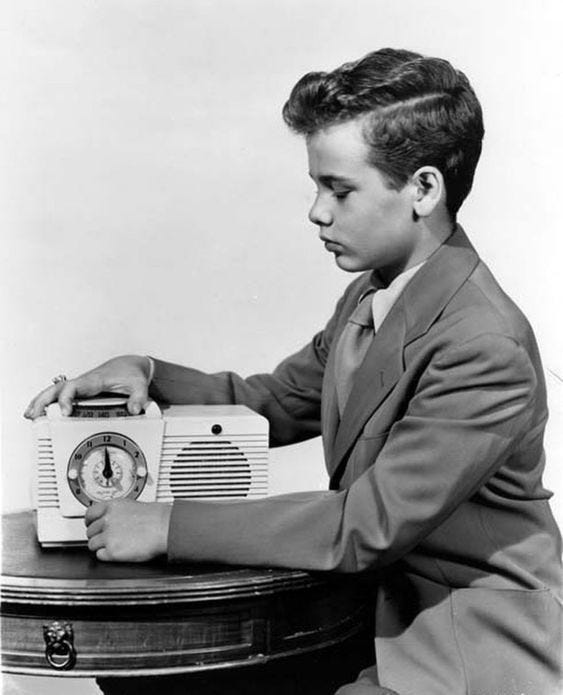
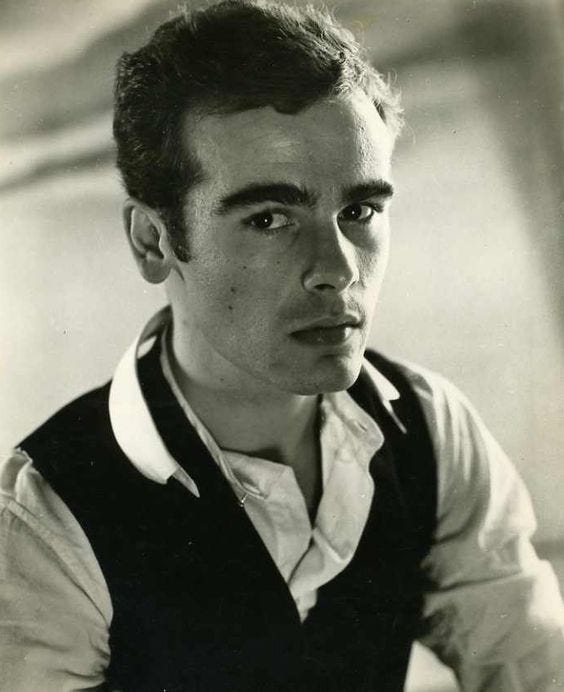
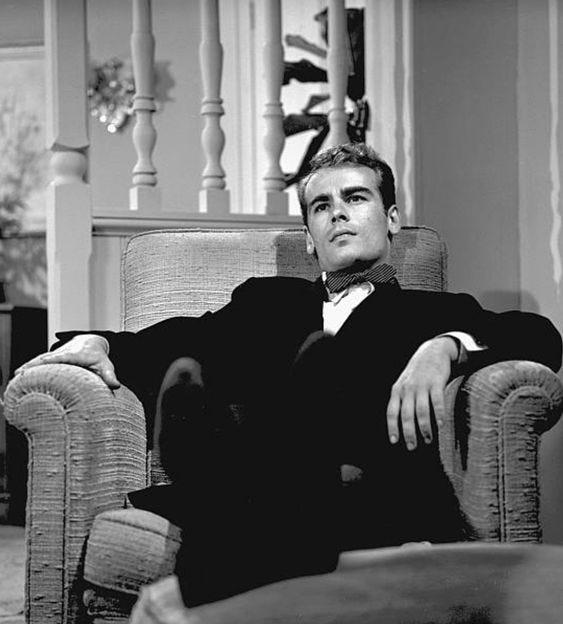
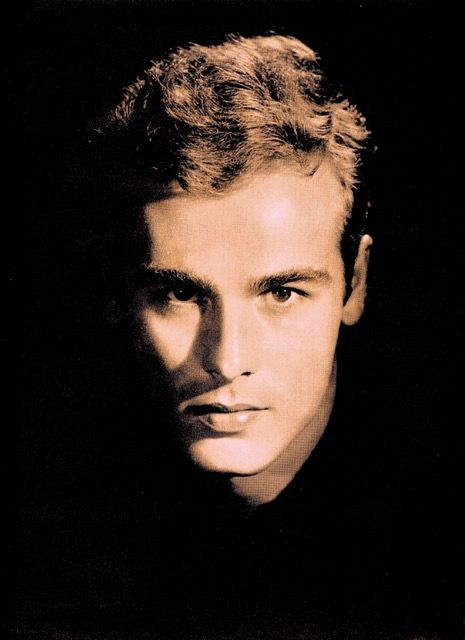
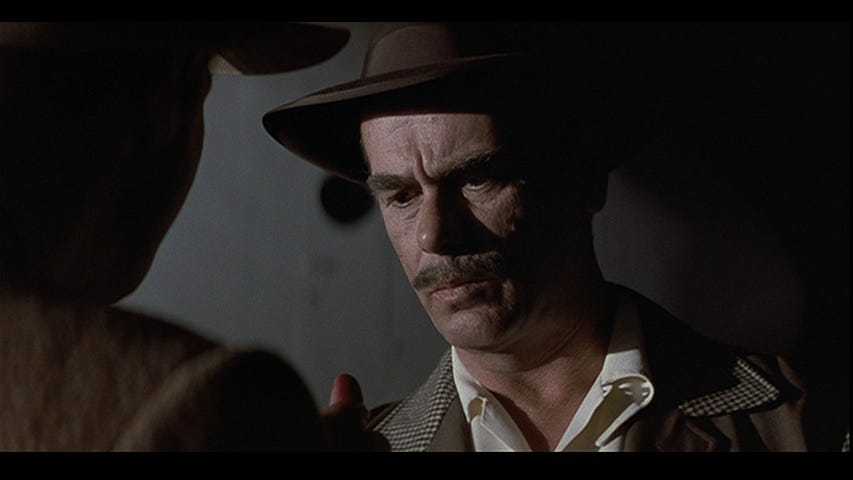
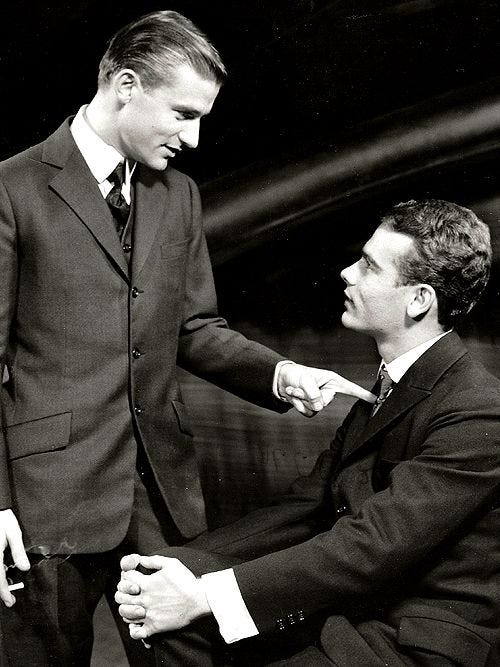
Thanks for your impressions. I think my favorite Dean Stockwell performance was his role as the kind, responsible brother to Harry Dean Stanton’s character in Wim Wenders’ “Paris, Texas” but he was unforgettable in “Blue Velvet” too. I love the few collages of Stockwell’s that I’ve seen—most in the “Semina Culture” book. Sorry for your loss.
This is beautiful. Thank you.